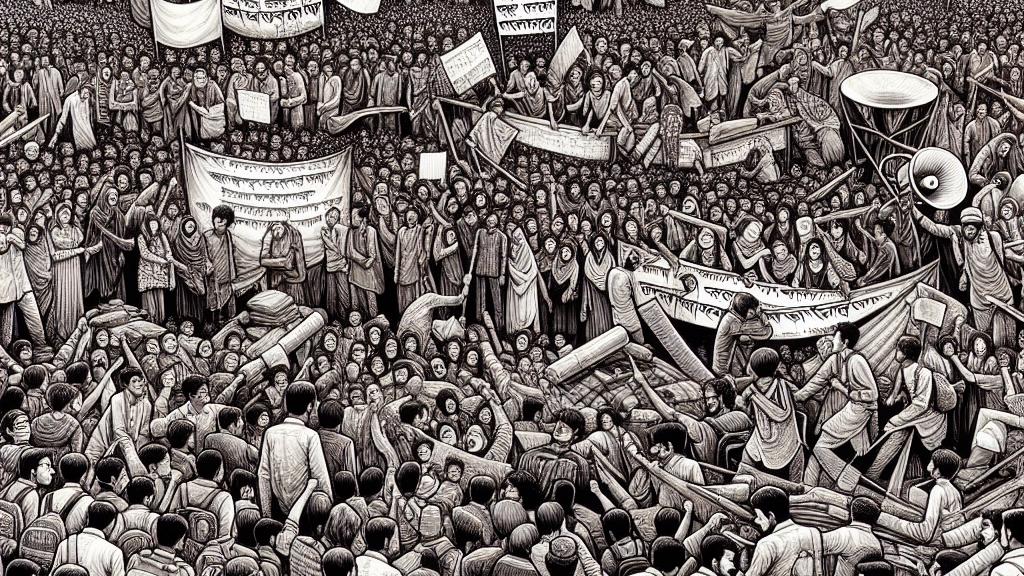Rising from the Ashes: How Bangladeshi Students Toppled a Government
Overview
- Students triggered a national movement against systemic job quotas in Bangladesh.
- The brutal crackdown led to significant violence, resulting in hundreds of casualties.
- Prime Minister Sheikh Hasina resigned as a result of mounting pressure from protests and the military.

The Catalyst for Change
The protests in Bangladesh ignited on July 1, 2024, when students mobilized against a Supreme Court ruling that reinstated a 30% job quota favoring descendants of 1971 independence war veterans. This decision was met with widespread outrage, as many viewed it as a step backward in the pursuit of equal opportunity and meritocracy. Students from various universities, armed with social media tools, orchestrated rallies, marches, and campaigns calling for an end to the quota system and pushing for a fairer society. The movement quickly transformed into a broader call for accountability and transparency in governance, resonating with historical struggles for justice and equality not only in Bangladesh but around the globe. Activists drew parallels to significant civil rights movements, showcasing the interconnectedness of youth efforts worldwide in challenging oppressive systems.
Violence and Resilience
As the students took to the streets, the government's response was swift and harsh. Prime Minister Sheikh Hasina's administration imposed a nationwide curfew and disrupted internet services, hoping to quell the rising discontent. However, the heavy-handed tactics only intensified the protests, leading to violent clashes between demonstrators and security forces. Shocking reports surfaced detailing police brutality, enforced disappearances, and targeted violence against activists, resulting in over 300 deaths. Images of bloodshed and suffering circulated on social media, attracting international attention and condemnation. This environment of fear and desperation transformed the protests into a fierce struggle for real change, fueling a commitment to fight against the oppressive tactics of the government. The student leaders, seen as modern-day heroes, embodied the spirit of resilience, encouraging their peers and citizens to stand united against the regime's injustice.
A New Dawn for Bangladesh
In a dramatic climax to the protests, on August 5, 2024, Prime Minister Sheikh Hasina resigned under immense pressure from both the public and military officials. Her departure was celebrated nationwide as a victory for the thousands who had risked their lives demanding change. The resignation represented more than just a shift in leadership; it symbolized the power of the collective voice of the people, particularly the youth, in driving democratic change. An interim government began to take shape, and students emerged as key political figures in discussions about the future of governance in Bangladesh. Their tireless activism highlighted the need for continued reform and a commitment to building a more equitable society. As the country looked ahead, the resilience and courage of the students served as a beacon of hope for ongoing democratic movements, inspiring future generations to advocate for their rights and the betterment of society.

Loading...